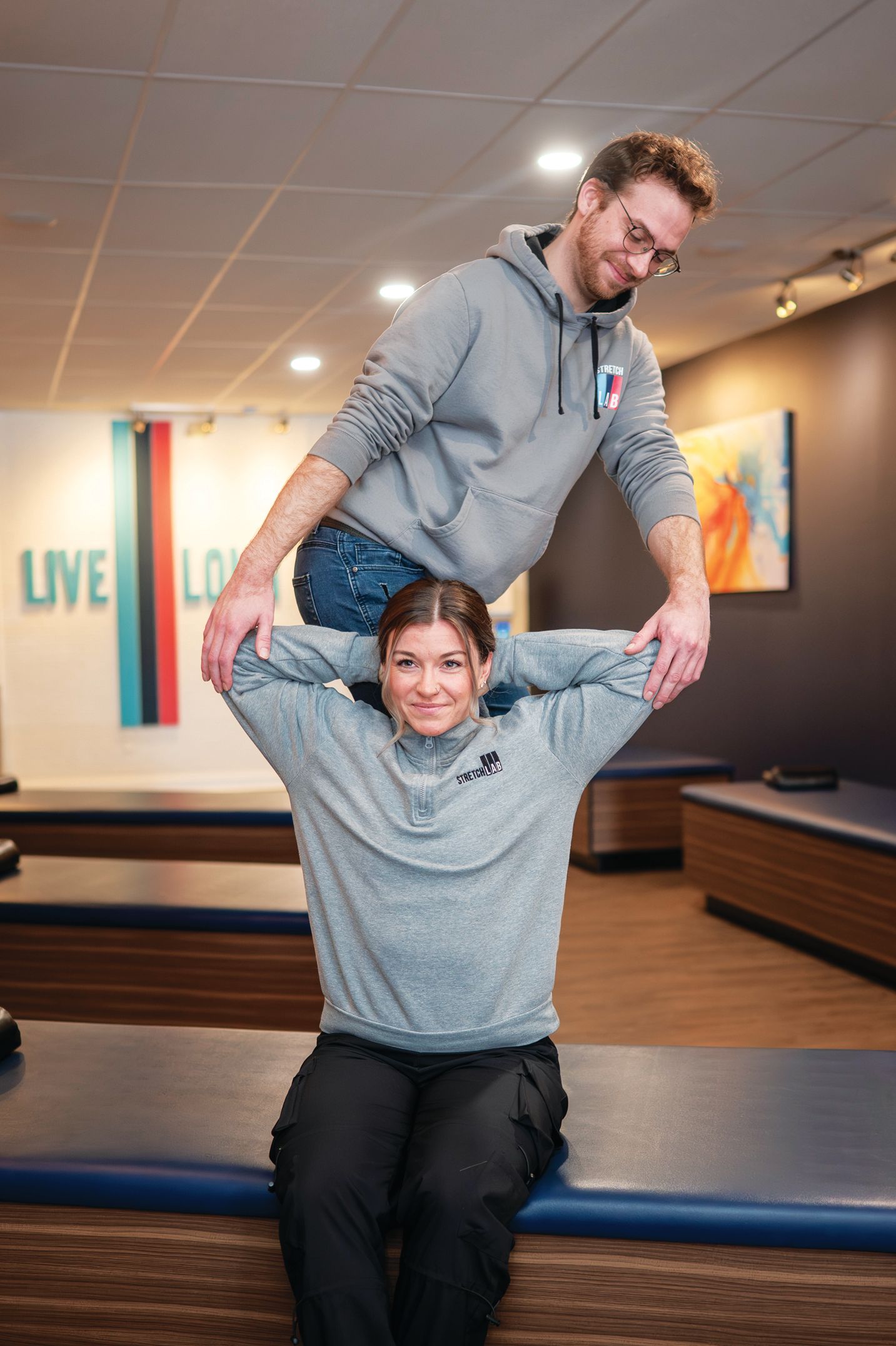A Final Thought: Me, my shelf and I
From dinosaur poop to Jedi wisdom: The surprising stories behind the objects that define a life.
Preface: I want to thank the many readers who emailed me to point out my embarrassing mathematical error in last month’s column. I stated that because Earth has a circumference of 24,000 miles and takes 24 hours to rotate, we are therefore traveling at 24,000 miles an hour. Readers kindly pointed out that 24,000 divided by 24 equals 1,000, not 24,000.
What I liked most about the emails was their gentleness. Many people noted how long they have been reading my column and how much they enjoy it—followed by, “I am revoking your math card.”
My first writing assignment in college was to find a bookshelf and describe its contents. I don’t recall what I wrote, but I was age 17 so I doubt it was any good.
Fast forward 46 years, and I’m playing darts in my basement, which has lots of library shelves with books and assorted knickknacks. One shelf I saw in a new light: It is a mini-museum inadvertently curated, a collection of items that amount to my autobiography. Here, I have decided to revisit that early college writing assignment:
The first thing you notice on the shelf is a medal from the Alabama National Guard awarded in 1954 “For service in the Phenix City civil disturbance.” I spent much of my childhood in Phenix City, Alabama, which in the first half of the 20th century was controlled by a local mob. It had infiltrated all levels of government, including law enforcement and the judicial system, so the mobsters could literally get away with murder. They operated illegal brothels and casinos, ran moonshine, and preyed on soldiers from nearby Ft. Benning (now Ft. Moore). After the assassination of Albert Patterson—who was running for attorney general with a promise to clean up the town—the governor declared martial law and sent in the National Guard. Many of the guilty parties were friends and family members. When a book came out naming names, my mother fell into a depression. She said, “Imagine finding out later in life that all the men you admired and respected as a teenager were actually gangsters.”
Next to the medal is a small piece of concrete from the Berlin Wall. I chiseled it out myself when I was in Berlin in 1981. I told the friends I was staying with that the wall was too ominous, too foreboding, too un-human to stand for long. They laughed and argued that the Wall would last forever. Eight years later, Harald Jager disobeyed orders and opened the gate at Bornholmer Strasse crossing—and that was it.
Then there’s the big rock, a chunk of coprolite I bought a few years ago at a gem and mineral shop in Sedona, Arizona. Coprolite is petrified dinosaur feces. I bought it because when I was in the fifth grade, I took my father’s rock collection to school for show-and-tell, where someone stole his piece of coprolite. I’ve felt guilty about that all these years. This new specimen gives me closure.
Next to the dinosaur poop sits a bronze paperweight inscribed with the words, “Revenge of the Jedi.” It was a promotional item distributed by LucasFilm before the movie’s title was changed to “Return of the Jedi.” I believe George Lucas felt that seeking revenge wasn’t a fitting motivation for honorable Jedi warriors. That’s how I try to live, too.
To the right of the paperweight is something I hesitate to reveal because I don’t want Interpol showing up at my door. It’s two tiny pieces of white tile held together by thin mortar. It’s from Pompeii. I acquired it from my father who got it from a neighbor who, in a brazen act of antiquities thievery, picked it up from the ground while touring Pompeii. It’s on my bucket list to travel there one day and put it back.
Then there’s a rattlesnake rattle with 17 rattlers. My father, brother and I killed the 5-foot-long snake while land surveying. There was nothing brave about it; we just ran over it with the truck. My brother skinned the snake and mounted it to a board, hoping to make a belt. It didn’t work, and rotting snake flesh smells precisely like what you think it does.
There’s more, including the four small pearls I have found over the years while eating raw oysters (the pink one I bit down on during brunch at Brennan’s in New Orleans), an arrowhead my father found while surveying, an antique strand of barbed wire and, oddly, a songbird’s skull.
Finally, propped upright on the shelf is a plaque that reads, Res mihi prospere evenissent, nisi isti molestissimi pueri se interposuissent. My wife is a huge Scooby Doo fan, and you probably know that every episode ends with some version of the line, “I would have gotten away with it if it weren’t for those meddling kids.”
As a gift for my wife, I asked a local Latin professor to translate the line and then had the plaque made. The prof said he couldn’t recreate the phrase exactly, so the plaque reads, “Things would have turned out prosperously for me had those bothersome youngsters not interposed themselves.”
That’s close enough.
Recent Posts
RELATED ARTICLES











